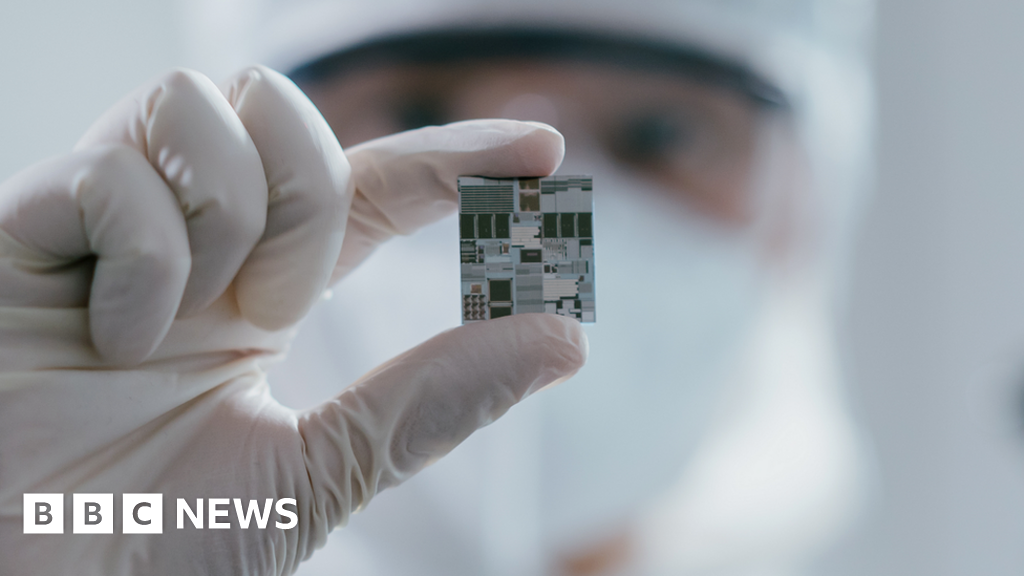US-China Chip War: Netherlands Moves To Restrict Some Tech Exports

The Dutch government is to put restrictions on the country's "most advanced" microchip technology exports to protect national security, following a similar move by the US.
It will include products by chip equipment maker ASML, a key firm in the global microchip supply chain.
In response, China has launched a formal complaint against the move.
It said it hoped the Netherlands would not "follow the abuse of export control measures by certain countries".
China has frequently called the US a "tech hegemony" in response to export controls imposed by Washington.
Semiconductors, which power everything from mobile phones to military hardware, are at the centre of a bitter dispute between the US and China.
A spokeswoman for the Chinese Foreign Ministry, Mao Ning, said the Dutch move aimed to deprive China of its right to develop.
Dexter Roberts, a senior fellow at the Washington-based Atlantic Council think tank, told the BBC that the decision by the Netherlands was "a real step forward, a real victory for the US and also very bad news for China".
"US-China relations are already in a pretty bad place. This clearly will make things even worse."
The measures will affect "very specific technologies in the semiconductor production cycle," the Dutch trade minister Liesje Schreinemacher said.
"The Netherlands considers it necessary on national and international security grounds that this technology is brought under control as soon as possible," she said in a letter to lawmakers on Wednesday.
Ms Schreinemacher added that the Dutch government had considered "the technological developments and geopolitical context," without naming China or ASML.
Under the new rules, companies would have to apply for licences to export technology including "the most advanced Deep Ultra Violet (DUV) immersion lithography and deposition".
ASML said in a statement that it expects the restrictions to apply to its "most advanced immersion DUV systems".
The company added that "based on today's announcement, our expectation of the Dutch government's licensing policy, and the current market situation, we do not expect these measures to have a material effect on our financial outlook."
Lithography machines use lasers to print miniscule patterns on silicon as part of the manufacturing process of microchips.
Since 2019 the Dutch government has stopped ASML from selling its most advanced lithography machines to China.
In October, Washington announced that it would require licences for companies exporting chips to China using US tools or software, no matter where they are made in the world.
The US has been pushing the Netherlands and Japan to adopt similar restrictions.
Meanwhile, South Korea's trade ministry raised concerns over the US policy on semiconductors earlier this week.
"The South Korean government will make it clear that the conditions of the Chips Act could deepen business uncertainties, violate companies' management and technology rights as well as make the United States less attractive as an investment option," the ministry said.
South Korea is home to major microprocessor manufacturers including the world's biggest memory chip maker Samsung.
You may also be interested in:
Watch: How the semiconductor shortage could be a problem for you
From Chip War To Cloud War: The Next Frontier In Global Tech Competition
The global chip war, characterized by intense competition among nations and corporations for supremacy in semiconductor ... Read more
The High Stakes Of Tech Regulation: Security Risks And Market Dynamics
The influence of tech giants in the global economy continues to grow, raising crucial questions about how to balance sec... Read more
The Tyranny Of Instagram Interiors: Why It's Time To Break Free From Algorithm-Driven Aesthetics
Instagram has become a dominant force in shaping interior design trends, offering a seemingly endless stream of inspirat... Read more
The Data Crunch In AI: Strategies For Sustainability
Exploring solutions to the imminent exhaustion of internet data for AI training.As the artificial intelligence (AI) indu... Read more
Google Abandons Four-Year Effort To Remove Cookies From Chrome Browser
After four years of dedicated effort, Google has decided to abandon its plan to remove third-party cookies from its Chro... Read more
LinkedIn Embraces AI And Gamification To Drive User Engagement And Revenue
In an effort to tackle slowing revenue growth and enhance user engagement, LinkedIn is turning to artificial intelligenc... Read more

